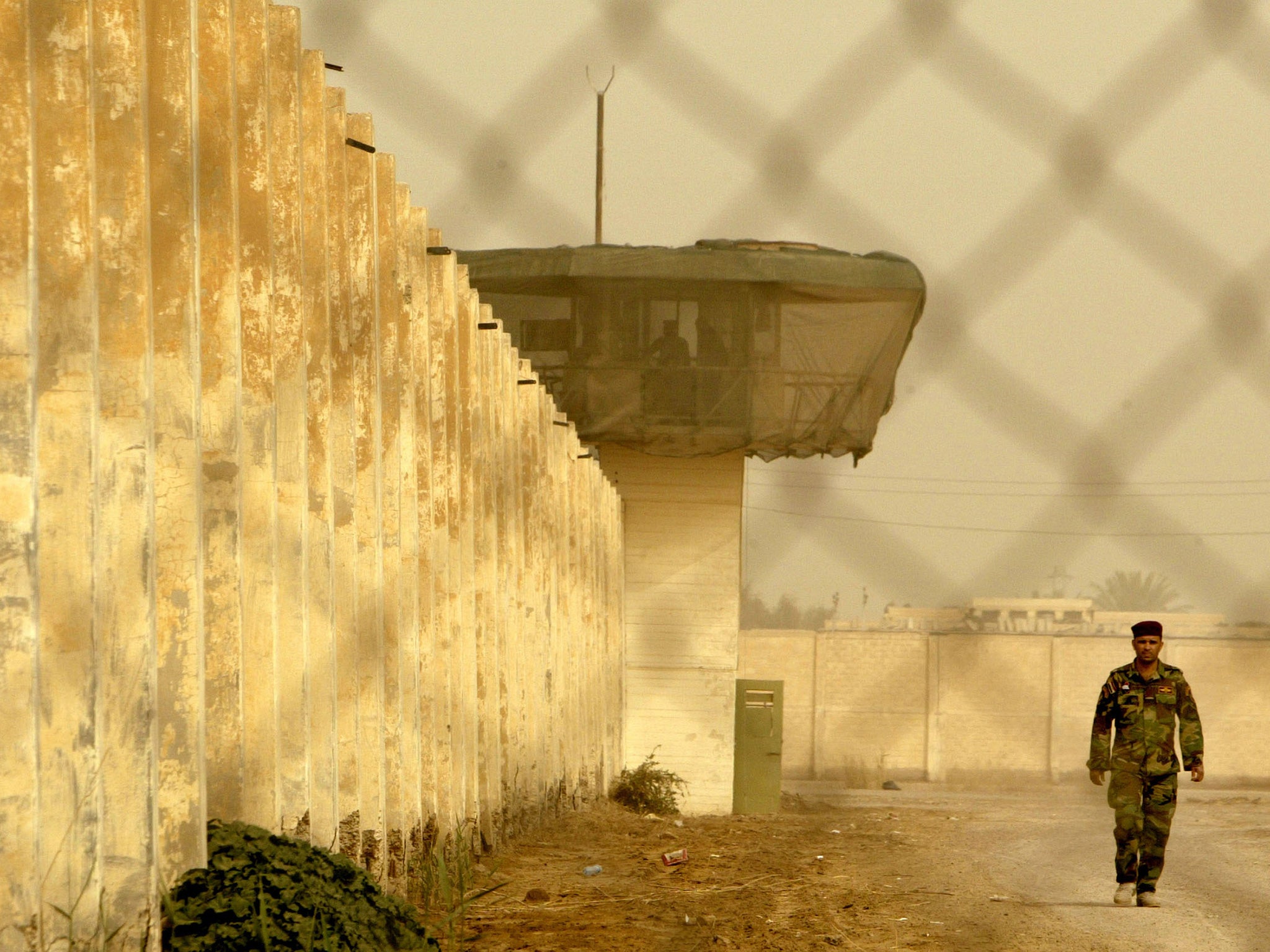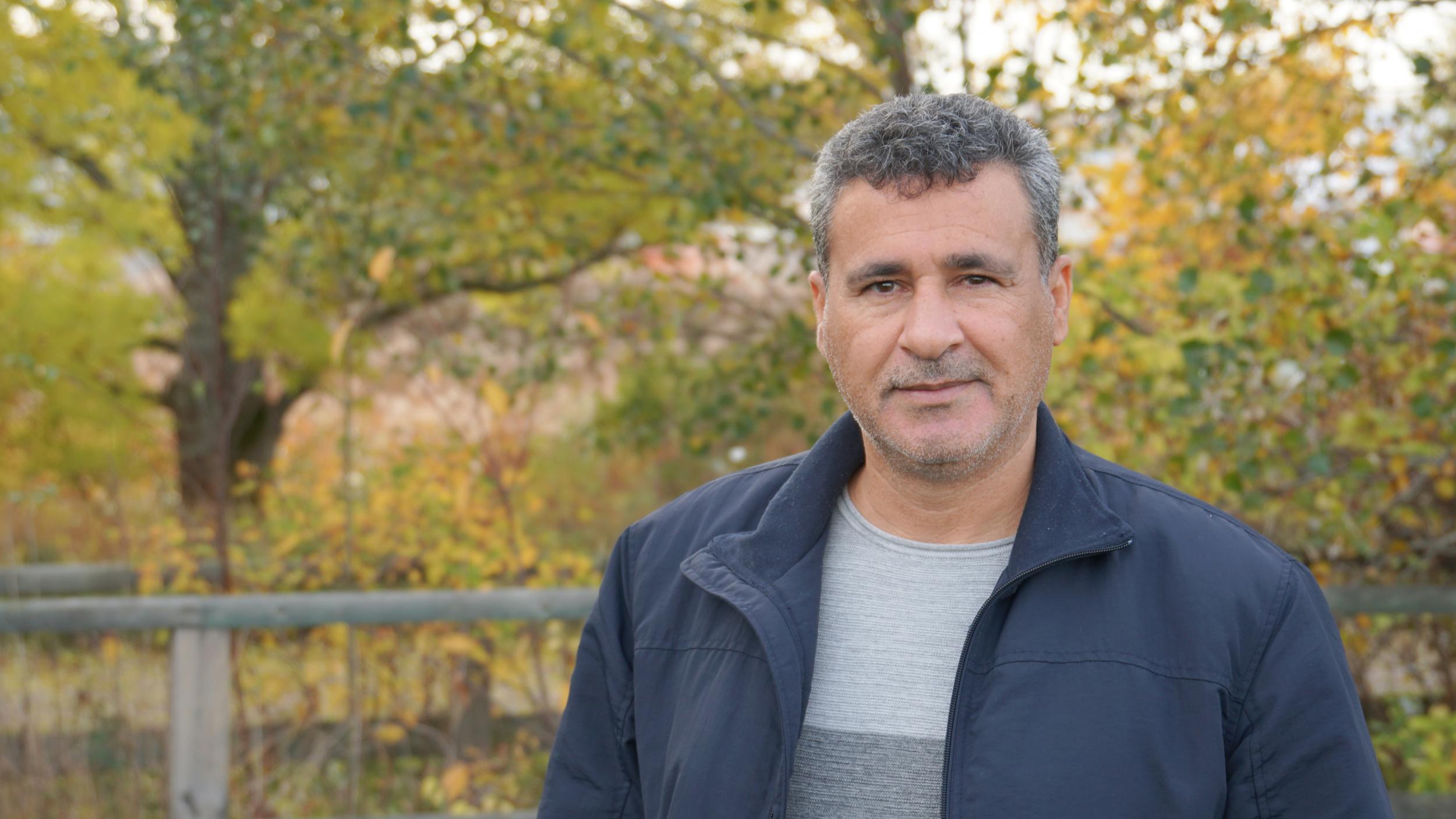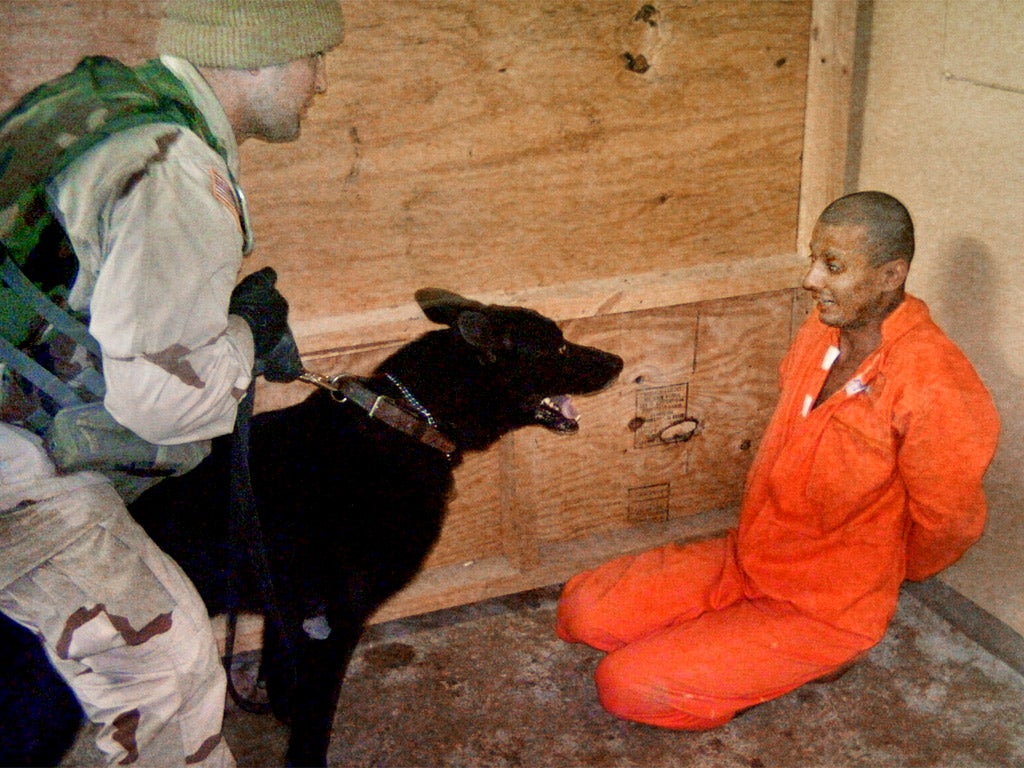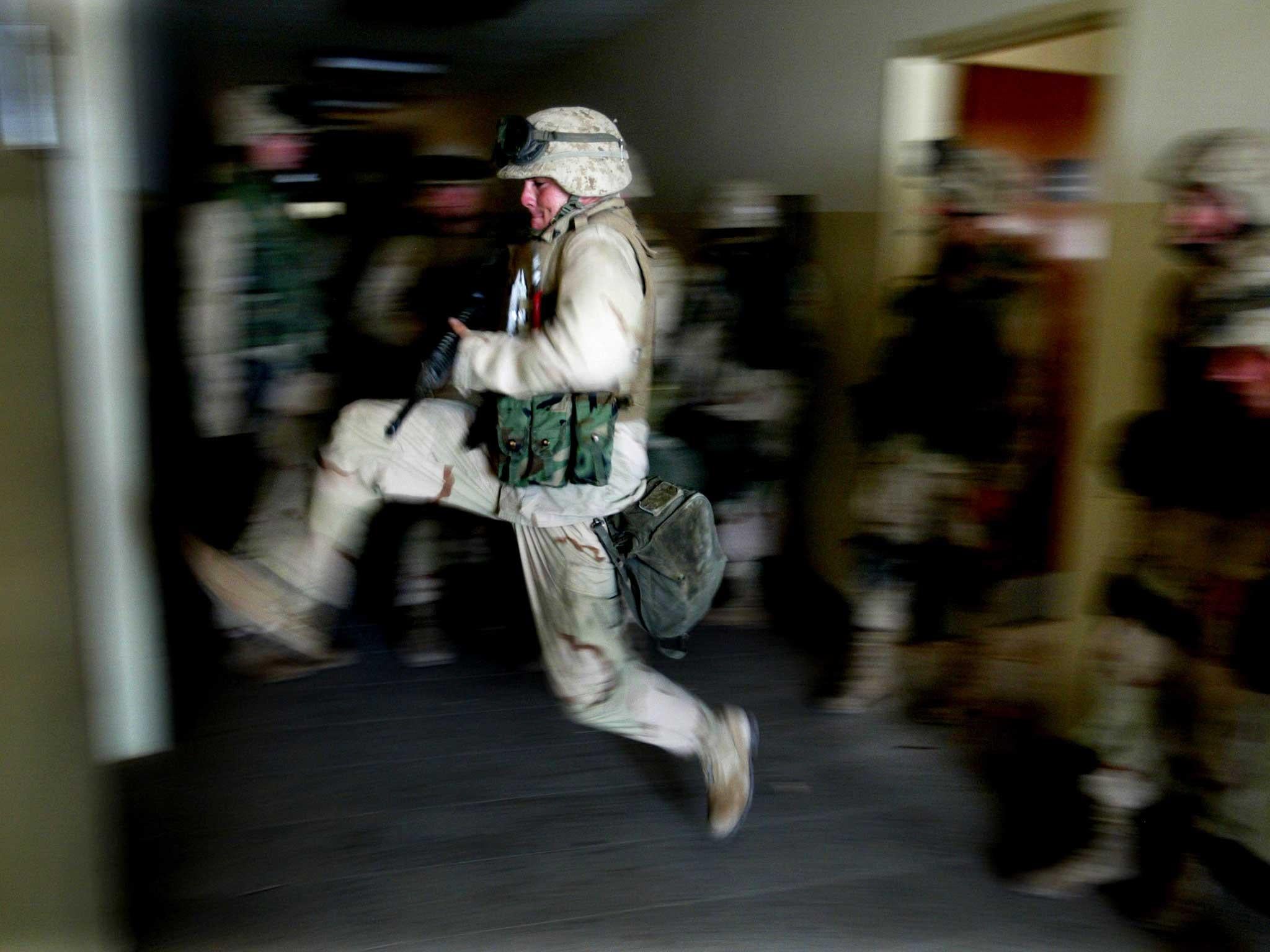‘It never really left me’: Abu Ghraib torture survivors finally get their day in court
After a 10-year battle for justice, Iraqi victims will see a private military contractor stand trial for its part in the torture scandal, writes


The images of torture at Abu Ghraib shocked the world when they emerged nearly 15 years ago.
Bound and naked men piled on top of each other in a pyramid. Hooded prisoners connected to electrical cables. A barking dog held inches away from a face fixed in terror.
Just as memorable as the horror of the victims were the smiling American soldiers present in many of the images. Their grinning faces symbolised a kind of unthinking cruelty that came to define the war for a generation of Iraqis.
The photographs tell a story, but they do not tell the whole story. While a handful of US soldiers were punished for their role in the scandal, others were not.
For the victims, there is unfinished business. Over more than a decade, a group of former detainees has been trying to sue a private military contractor they say was closely involved in the abuse at Abu Ghraib.
The company, CACI Premier Technology, was contracted by the Pentagon to provide interrogators for the jail. To this day, it still has contracts worth hundreds of millions of dollars with the US Department of Defence.
The firm has fought to stop the case from being heard for more than 10 years, according to lawyers involved in the case. But now, the detainees will have their day in court. A ruling last month by a federal judge means that CACI will face trial for the first time for its alleged role in the Abu Ghraib torture scandal. The case alleges torture, war crimes and inhumane treatment under international law.

Salah al-Ejaili, a 48-year-old former journalist who was detained and tortured at the notorious prison, still lives with the emotional pain of his time there.
“Even now I still think about it,” he says. “I have nightmares where I’m falling into a hole, where I have a bag over my head. It never really left me.”
Mr Ejaili was working for Al Jazeera in Iraq in 2003 when he went to report on the aftermath of a bomb attack. He was rounded up by the US military on suspicion of involvement with the attack and taken to Abu Ghraib, 20 miles west of Baghdad. Thousands ended up in the prison in the same way – picked up at checkpoints or taken in random sweeps by the US military, having committed no crime.
In the very first hour after arriving at the jail, his abuse began. His jailors called him “Al Jazeera” when they spoke to him, he says.
“They told me that either I take off my clothes or they would take them off by force,” he tells The Independent by phone from Sweden, where he has been granted refugee status and been resettled.
“After that, they kept me naked for 10 hours with a black bag over my head.”

On another occasion, after he was left naked in his cell, he asked a passing American soldier for some clothes.
“She said, ‘Of course’. She went and came back with some women’s underwear, threw it at me and started laughing.”
He was later held in solitary confinement for days at a time.
“I was scared. I was scared I would never leave. I was scared for my family. I feared for my life. I used to hear screams from other detainees,” he says.
“You have no feeling or concept of time. Your thoughts are kind of everywhere, you can’t really focus.”

Even before the Americans came along, Abu Ghraib was synonymous with torture. In the Saddam Hussein era, the jail was known as “torture central”. Thousands of people who ended up there never left. Amnesty International described it as a “centre of torture and mass executions”.
Sixteen years ago, US-led forces invaded Iraq in order to remove Hussein. When that regime collapsed in the first year of the invasion, the prison was looted and its prisoners freed. The US reopened it in the same year to use it as a detention centre for Iraqis.
The abuse Mr Ejaili suffered was typical of what prisoners experienced at Abu Ghraib.
An internal investigation by the US military in April 2004, carried out by Major General Antonio Taguba, described “sadistic, blatant and wanton criminal abuses” inflicted on detainees.
“This systemic and illegal abuse of detainees was intentionally perpetrated by several members of the military police guard force,” it was found.
The report also named CACI employees as being responsible for some of the abuse.
One employee “allowed and/or instructed [military police], who were not trained in interrogation techniques, to facilitate interrogations by ‘setting conditions’ which were neither authorised and in accordance with applicable regulations/policy. He clearly knew his instructions equated to physical abuse”, the report noted.
They would do the interrogations while I was naked, with a black bag over my head ... I felt like I had completely lost control, that I was just some creature in their hands
The report was leaked some months later, leading to a crisis in the ongoing US war. Then president George W Bush made a public apology for the “humiliations suffered by the Iraqi prisoners and the humiliations suffered by their families”.
A total of 11 US soldiers were convicted of crimes relating to the scandal. But because the US government claims to be immune to lawsuits, Mr Ejaili and the other detainees have never received compensation for the damage done to them.
The same is not true of CACI, which detainees claim is equally responsible for the abuse they suffered.
“The fear would rise among prisoners when those interrogators came,” says Mr Ejaili, referring to the CACI staff. “They were worse than the US soldiers.”
“They would do the interrogations while I was naked, with a black bag over my head. Sometimes out of nowhere the [military police] would just punch me, I felt like I had completely lost control, that I was just some creature in their hands.
“I used to ask them, ‘What do you want me to say? What do you want from me?’ They never had a really clear answer.”

CACI denied the charges in the report, and the company’s CEO, Jack London, took the unusual move of writing a book in response.
The blurb for Our Good Name: A Company’s Fight to Defend its Honor and Get the Truth Told about Abu Ghraib talks of “a media frenzy rarely seen by any company in recent decades”, which “twisted the unsupported allegations into a guilty verdict without regard for the facts or the truth, creating a damning public perception of CACI”.
“Our Good Name is CACI’s story of facing one of the biggest scandals in recent history … and coming out honorably with its head high,” it goes on.
In response to a request for comment from The Independent, CACI said the allegation against it “was not substantiated by any evidence or proof at the time it was made, and subsequent investigations by both CACI and the US government could not confirm it”.
“The allegation was completely unrelated to the shocking and disturbing photos seen in the press around the same time. Fifteen years on, the allegation remains totally unfounded and unproven. No CACI employee has ever been charged with any wrongdoing,” the company said in a statement.
“CACI have always taken this allegation extremely seriously. CACI do not condone, tolerate or endorse any illegal behaviour by its employees in any circumstances or at any time. If an employee of CACI had been found to be involved in such behaviour we would have taken swift and appropriate action.”
In the years since, the case alleges, Mr Ejaili and the other plaintiffs have suffered severe mental distress because of their treatment.
In a 54-page ruling granting the trial, which is scheduled for 23 April, district judge Leonie Brinkema said there was “evidence in the record that this mistreatment has caused severe and lasting physical and mental damage to all three plaintiffs”.
“Each has been diagnosed with post-traumatic stress disorder and major depressive disorder, and each has submitted an expert report detailing how these mental illnesses have caused significant problems in plaintiffs’ personal and professional lives up through today,” she wrote.
Baher Azmy, legal director of the Centre for Constitutional Rights, which has taken on the case, called it a “landmark” judgment.
“The judge said that what they endured amounts to torture,” he says. “That’s significant because the defendants, as well as George Bush and Dick Cheney-era folks, try to minimise it. ‘What’s a little bit of cold water, a day with underwear on your head is nothing’ and so on. The judge recognised that you have to look at the experience of torture holistically. It’s compounded.”
“All three of them suffer from PTSD. These people were shattered,” he adds.

Mr Azmy describes the lawsuit as something of a David vs Goliath battle.
“We’re dealing with an enormously well resourced and aggressive defendant,” he says of CACI. “For 10 years they have used their considerable wealth to get the case dismissed. We’ve been up and down the court of appeals four times.”
The case argues that the chaos of the jail gave CACI interrogators authority over US military personnel, and that they used that authority to direct those soldiers to carry out abuse.
“We believe there was a command vacuum in Abu Ghraib. It was chaotic, not well run and not well supervised. And in that vacuum, CACI interrogators, who were older than the military police, assumed positions of authority and started directing the MPs to abuse detainees or ‘soften them up’ for interrogations that they would be doing,” he says.
“Two US soldiers were court martialed for this conspiracy, and they testified that it was CACI interrogators who told them what to do. Those soldiers spent years in jail for these crimes, but so far the co-conspirators at CACI have not been held to account.”
Mr Ejaili was released from Abu Ghraib without charge after 48 days in detention. Following a five-minute trial it was determined that he was telling the truth about his job as a journalist.
I lost my self-confidence. I was tired mentally. I had fear of facing others, and bursts of anger. I tried to heal myself. That process of self healing was long
“I was taken in a car with other detainees and they left me on a street. I had no money and no shoes,” he says.
But his ordeal didn’t end there. Months later, the images of the abuse that was taking place in the prison became public.
“It was like throwing salt on an open wound,” he says.
“I had that black bag on my head a lot, so some of these pictures might be me. I felt even more humiliated. I was constantly thinking people would know it was me in the pictures. It was suddenly known what had happened to me.”
Mr Ejaili is still affected to this day by what happened, suffering from post-traumatic stress disorder.
“I lost my self-confidence. I was tired mentally. I had fear of facing others, and bursts of anger. I tried to heal myself. That process of self-healing was long,” he says.
The notorious jail at Abu Ghraib lies empty and abandoned today. The barbed wire around its perimeter is rusting. Its former dungeons quiet and still. But the legacy of the scandal lives on.
In fact, there could not be a more fitting time for a public trial over the use of torture at Abu Ghraib. In the age of Trump, torture is no longer the taboo it once was.
The president himself has openly supported the kind of abuse that caused the scandal all those years ago. And he appointed Gina Haspel, who played a key role in setting up black sites like Abu Ghraib throughout the war on terror, as director of the CIA.
CACI still does an enormous amount of business with the US military. As recently as November last year, the company was awarded a $413m contract to “provide support ground-based intelligence and communications systems” for the US army.

Mr Ejaili’s own country has changed dramatically, too. What happened at Abu Ghraib cannot be separated from what came after. As far as he sees it, a straight line can be drawn from the scandal, and others like it, to the rise of Isis.
“That Isis mentality was basically created in these prisons,” he says. “There were innocent people who came into these prisons and were tortured and turned into different people. They were schools for radicals.”
Indeed, it is believed that the Isis founder, Abu Bakr al-Baghdadi, spent time at Abu Ghraib when Mr Ejaili was there.
Mr Ejaili says his aim is not to settle old scores or replay the war but to stop something like Abu Ghraib ever happening again.
“If the court rules in our favour it would be a clear message for any company or officials that torture will not be tolerated.”
“I am not doing this for a grudge, I am doing it to get justice,” he says. “And not just for me, for everyone.”
Join our commenting forum
Join thought-provoking conversations, follow other Independent readers and see their replies
Comments
Bookmark popover
Removed from bookmarks